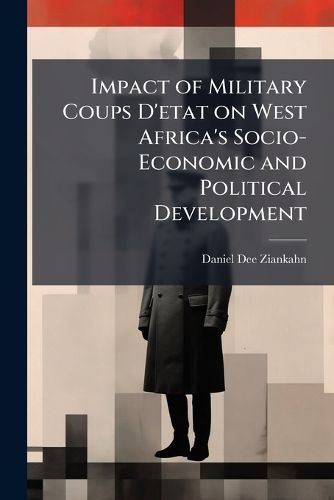Readings Newsletter
Become a Readings Member to make your shopping experience even easier.
Sign in or sign up for free!
You’re not far away from qualifying for FREE standard shipping within Australia
You’ve qualified for FREE standard shipping within Australia
The cart is loading…






This title is printed to order. This book may have been self-published. If so, we cannot guarantee the quality of the content. In the main most books will have gone through the editing process however some may not. We therefore suggest that you be aware of this before ordering this book. If in doubt check either the author or publisher’s details as we are unable to accept any returns unless they are faulty. Please contact us if you have any questions.
Following the period from 1957-1960, when most countries in West Africa broke loose from colonialism and became independent, the need for an integrated and classless society was one of paramount concern to most, if not all, West Africans. Up to date, the impact of colonialism was still being felt at every stratum of the sub-region. As former colonies of European powers began to gain independence from their colonial masters, the educated class eventually dominated and controlled the political landscape of their respective countries. The educated elites representing their countries' leadership with inherent authority over the military rarely used the armed forces for the intended purpose for which they were created. As the results of the military being used by politicians as an instrument of fear against their own citizens coupled with political misrule, the military soon began to seize and control state power through military coup d'etats. There were, however, disagreements and dissatisfactions within the ranks and file of the military which led to counter-coups and more often than not civil wars. As the results of these and many more, the sub-region's social-economic and political institutions have been devastated for the past three to four decades from which they are yet to recover.
This work has been selected by scholars as being culturally important, and is part of the knowledge base of civilization as we know it. This work was reproduced from the original artifact, and remains as true to the original work as possible. Therefore, you will see the original copyright references, library stamps (as most of these works have been housed in our most important libraries around the world), and other notations in the work.
This work is in the public domain in the United States of America, and possibly other nations. Within the United States, you may freely copy and distribute this work, as no entity (individual or corporate) has a copyright on the body of the work.
As a reproduction of a historical artifact, this work may contain missing or blurred pages, poor pictures, errant marks, etc. Scholars believe, and we concur, that this work is important enough to be preserved, reproduced, and made generally available to the public. We appreciate your support of the preservation process, and thank you for being an important part of keeping this knowledge alive and relevant.
$9.00 standard shipping within Australia
FREE standard shipping within Australia for orders over $100.00
Express & International shipping calculated at checkout
This title is printed to order. This book may have been self-published. If so, we cannot guarantee the quality of the content. In the main most books will have gone through the editing process however some may not. We therefore suggest that you be aware of this before ordering this book. If in doubt check either the author or publisher’s details as we are unable to accept any returns unless they are faulty. Please contact us if you have any questions.
Following the period from 1957-1960, when most countries in West Africa broke loose from colonialism and became independent, the need for an integrated and classless society was one of paramount concern to most, if not all, West Africans. Up to date, the impact of colonialism was still being felt at every stratum of the sub-region. As former colonies of European powers began to gain independence from their colonial masters, the educated class eventually dominated and controlled the political landscape of their respective countries. The educated elites representing their countries' leadership with inherent authority over the military rarely used the armed forces for the intended purpose for which they were created. As the results of the military being used by politicians as an instrument of fear against their own citizens coupled with political misrule, the military soon began to seize and control state power through military coup d'etats. There were, however, disagreements and dissatisfactions within the ranks and file of the military which led to counter-coups and more often than not civil wars. As the results of these and many more, the sub-region's social-economic and political institutions have been devastated for the past three to four decades from which they are yet to recover.
This work has been selected by scholars as being culturally important, and is part of the knowledge base of civilization as we know it. This work was reproduced from the original artifact, and remains as true to the original work as possible. Therefore, you will see the original copyright references, library stamps (as most of these works have been housed in our most important libraries around the world), and other notations in the work.
This work is in the public domain in the United States of America, and possibly other nations. Within the United States, you may freely copy and distribute this work, as no entity (individual or corporate) has a copyright on the body of the work.
As a reproduction of a historical artifact, this work may contain missing or blurred pages, poor pictures, errant marks, etc. Scholars believe, and we concur, that this work is important enough to be preserved, reproduced, and made generally available to the public. We appreciate your support of the preservation process, and thank you for being an important part of keeping this knowledge alive and relevant.